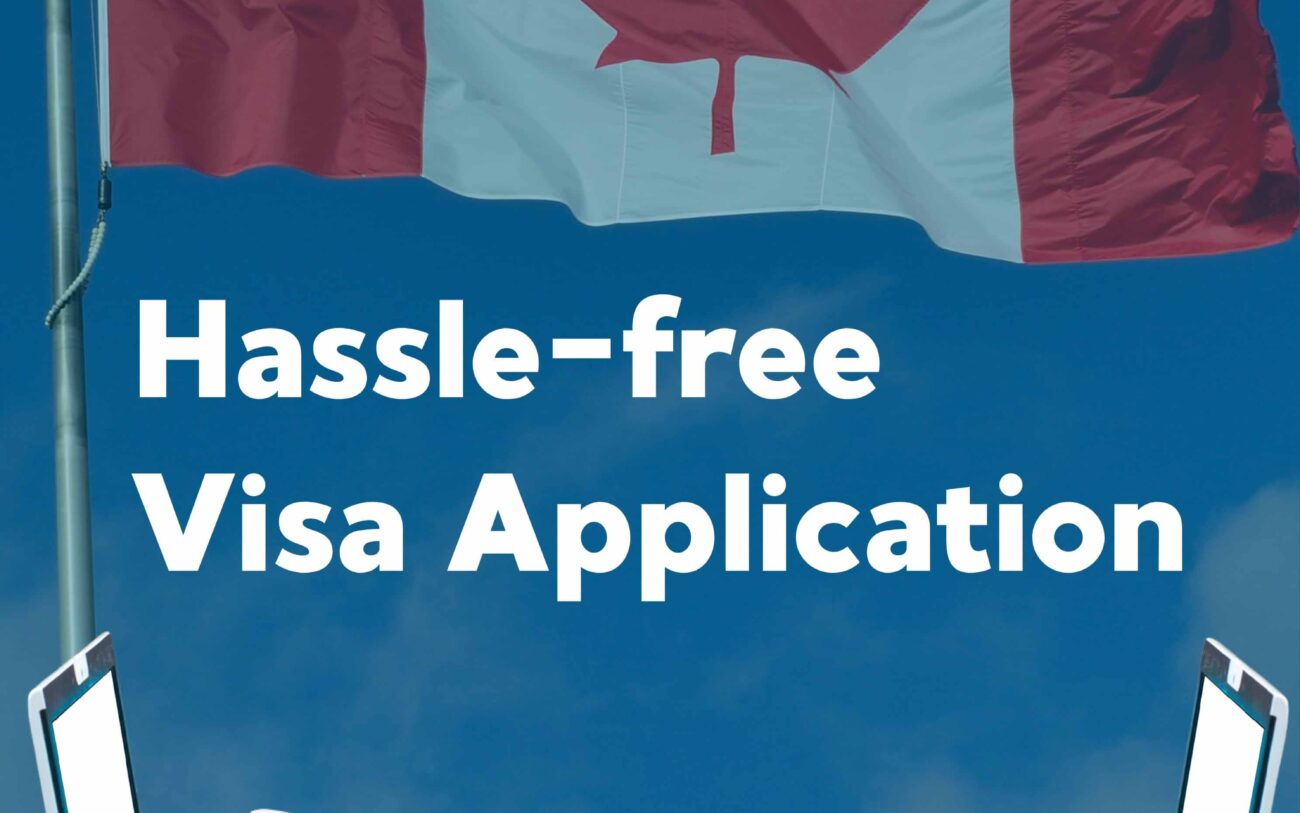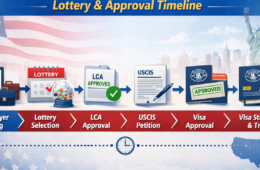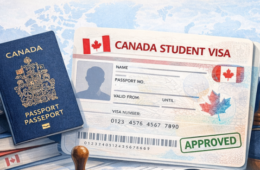
Top 10 Mistakes to Avoid When Applying for a Study Visa in Canada

Applying to get the Canadian study visa demands careful focus on the details. The most common mistakes made are submitting incorrect or incomplete documents, failing to keep current with the latest immigration regulations or submitting weak evidence of financial backing can impact the application. Also, not addressing the need to provide certified translations, or submitting an insufficient statement of Purpose (SOP) or failing to address academic issues could result in a visa rejection. Also, it is essential to not miss deadlines, submit incorrect information and fail to address any deficiencies in your education. To increase the chances of a successful application you must be punctual as well as transparent and active during the entire procedure.
Common Document Mistakes That Can Lead to Study Visa Denial
A significant reason for Canadian study visa rejections is the submission of incomplete, inaccurate, or inconsistent documents. Simple mistakes, such as missing signatures, outdated forms, or incorrect personal details, can raise red flags for immigration officers, leading to delays or refusals. To avoid these errors, reviewing each section of your application carefully is essential, ensuring that all forms are filled out accurately. If a particular section doesn’t apply to you, write “N/A.” Additionally, please verify the accuracy of your documents, such as your passport, bank statements, and acceptance letter, ensuring they are up to date and properly formatted.
Ignoring Changes in Immigration Rules for Your Study Visa Application
Canada’s immigration regulations evolve regularly, and failing to stay updated on these changes can lead to significant issues with your study visa application. Ignorance of the latest rules may result in submitting outdated forms, missing new requirements, or misunderstanding eligibility criteria, which could delay or jeopardize your approval.
To stay informed, make it a habit to regularly check the official website of Immigration, Refugees, and Citizenship Canada (IRCC) for the latest updates. The IRCC frequently publishes essential changes that could affect your application. Additionally, consulting with a reputable visa consultant or legal advisor can help ensure your application complies with the most current regulations. By proactively seeking expert advice and remaining well-informed, you will be better prepared to navigate Canada’s evolving immigration policies, significantly improving your chances of obtaining a study visa.
Weak Proof of Financial Support
A critical requirement for a successful study visa application is sufficient financial support. Applicants must prove that they can cover tuition fees, live expenses, and return travel. A common reason for visa rejection is the failure to provide strong, clear evidence of financial stability.
Submit recent, consistent bank statements that meet or exceed the required balance to strengthen your application. If you have received a scholarship or sponsorship, include official letters as proof of support. Submitting funds beyond the minimum requirement can further reinforce your financial standing. Providing adequate proof of financial stability is crucial to avoid unnecessary complications in your application process.
The Importance of Certified Translations in Your Canada Study Visa Application
An often-overlooked mistake international students make when applying for a Canadian study visa is submitting documents without certified translations. According to the 2025 Canada immigration guidelines, failure to provide certified translations can delay or even reject your student visa application.
Immigration officers must review academic records, financial documents, and personal information without language barriers. Any untranslated or informally translated documents, such as transcripts or financial statements, are typically rejected and may raise concerns about document authenticity.
To comply with immigration requirements, ensure that all translations are completed by certified translators and accompanied by an affidavit. Every translation must include the translator’s full name, signature, contact details, date, and a declaration of accuracy. Always submit the original documents and their translations, ensuring consistency between them and preventing complications.
The Importance of a Strong Statement of Purpose (SOP)
A well-crafted Statement of Purpose (SOP) is essential to your study visa application. The SOP allows you to present your academic background, explain your choice of course and institution, and outline your career goals. A weak or generic SOP can raise questions about your intentions, potentially resulting in a visa refusal.
Your SOP should link your past education to your chosen program and future career plans. It should clearly explain why you decided to study in Canada and how the program aligns with your long-term objectives. If you have academic gaps or career changes, address them honestly and thoughtfully. It’s essential that your SOP is free from plagiarism, uses proper grammar, and is personalized for each application. Immigration officers value clarity, intent, and purpose. A well-structured, compelling SOP can significantly improve your chances of receiving a study permit in Canada.
Submitting a Weak Statement of Purpose (SOP)
A weak or generic Statement of Purpose (SOP) is a common reason for Canada study visa rejections. The SOP is your chance to present your academic background, explain why you chose Canada, and demonstrate how your chosen program aligns with your career goals. A poorly written SOP can raise doubts about your intentions and make it seem like you’re seeking immigration, not education. To avoid this, ensure your SOP clearly links your past studies with your future goals, addresses any academic gaps, and is free from plagiarism. A well-crafted SOP boosts your chances of Canada study permit approval.
Addressing Academic Inconsistencies in Your Study Visa Application
Academic inconsistencies are a common reason for rejection of a Canadian study visa. Visa officers expect a clear link between your previous education and the program you plan to pursue in Canada. If your chosen course does not align with your academic background, it may raise concerns about your genuine intent to study. The IRCC requires applicants to justify any career or field changes and explain academic gaps or failures in their Statement of Purpose (SOP). Providing relevant transcripts, certificates, and work experience helps support your case. A well-explained academic shift increases your chances of visa approval under 2025 guidelines.
Address Education Gaps and Avoid Study Visa Rejection
for Canada To avoid mistakes when applying for a study visa Canada, it’s important to address any unexplained gaps in education with honesty and proper documentation. Gaps longer than six months can raise red flags for IRCC if not clearly justified. Visa officers look for a consistent academic history that shows a genuine intent to study. If you have breaks in your education, explain them clearly in your Statement of Purpose (SOP) and provide evidence such as medical records, employment letters, or certificates for relevant courses. Acceptable reasons may include health issues, family responsibilities, work experience, or exam preparation. Lack of explanation or supporting documents can lead to doubts about your motivation and result in student visa rejection. To strengthen your application, be transparent and ensure all information is accurate. If you’re unsure how to present your case, consult a licensed visa consultant Canada who can help guide you through the Canada immigration process effectively.
Avoiding Missed Deadlines in Your Canada Study Visa Application
Missing deadlines is a frequent yet avoidable issue in the student visa application process and can lead to unnecessary delays or even refusal of your Canada study permit. Key stages such as document submission, biometrics, and medical exams are all time-sensitive and must be completed within the given timelines set by IRCC. To prevent this, it’s important to begin your application process early, gather all necessary documents, and follow a detailed visa document checklist. Use a calendar or planner to keep track of important deadlines, both from immigration authorities and your chosen institution. Timely submission of required documents, forms, and fees ensures a smoother application experience. Staying organized and proactive at every step of the Canada immigration
process not only helps you meet critical deadlines but also improves your chances of successfully securing a study visa Canada without complications.
Avoiding Inconsistent or Conflicting Information in Your Canada Study Visa Application
Inconsistent or conflicting information in your study visa Canada application can lead to delays or rejection. IRCC reviews all documents carefully, and discrepancies like mismatched names or dates raise concerns about your credibility. To prevent this, double-check all details across forms, including your personal information, academic history, and financial documents. If unavoidable discrepancies exist, such as name changes or gaps in education, provide clear explanations in a cover letter. Being transparent and ensuring all documents are aligned demonstrates your commitment and increases the likelihood of securing a Canada study permit successfully.
Conclusion:
To ensure that the success of your Canada studies visa application success, it’s essential to be aware of frequent mistakes mentioned earlier. Everything is crucial, from providing precise documentation and keeping up to date with changes to immigration, to making sure you submit the most solid SOP and correcting any academic inconsistencies. Additionally, fixing the gaps in your education and making sure you have that your application is consistent can demonstrate your true intention to attend college at a university in Canada. When you carefully follow the application guidelines and seeking advice from an expert whenever necessary, you will greatly increase your odds to get your study visa as well as achieving your career and academic goals within Canada.





